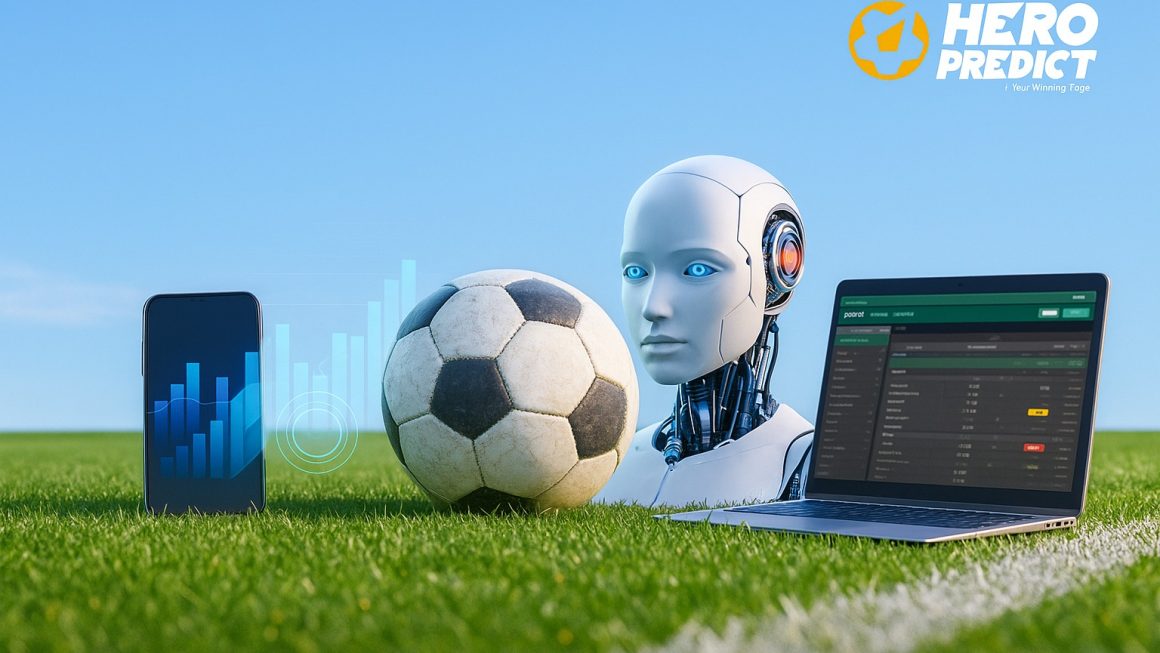In the sport and soccer world today, it is generally accepted that one of the most discussed topics is how technology is changing football. Football is no longer just about natural ability, passion or a manager’s tactics, it is about data, A.I. and digital technology. Everything from the scouting of unknown players through the use of algorithms to the use of GPS trackers during practice sessions has subtly transformed the way football is played, viewed, and gambled on.
For fans, that translates to a truer and more equitable game. For bettors, this has translated into making more informed choices and improving their odds at predicting results. Technology is certainly making its presence felt, whether you’re a die hard fan present in the stadium, a casual one watching from live streams on phones or a football punter seeking for an edge.
In this article, we will take a look at how AI scouting in football is finding hidden gems, how VAR is changing refereeing, how GPS tracking is impacting training and betting, and finally how smart betting via data such as Expected Goals (xG) is impacting punters play.
AI in Scouting Players
AI football scouting has completely changed how players are scouted. Clubs previously largely used travelling scouts who would often attend matches and take notes of prospective players. Platforms powered by AI can scan thousands of players worldwide in seconds. They analyze things like, passing completion, shots on target, speed and defensive positioning. All things that human eyes may have overlooked.
Consider, for example, Brentford FC from the English Premier League. They use data driven scouting to find players who are undervalued. Instead of overpaying for stars, they discovered players like Ollie Watkins and Neal Maupay, who then became stars. Similar results can be followed for German and Dutch clubs, with intelligent scouting making the difference.
For the betting wallets this means that an “unknown striker from Denmark” could be the player to watch. And if you are paying attention, this could mean the difference between a winning bet and a losing bet.
VAR and Referee Technology
Today, there is no way one will want to discuss how technology is influencing the game of football without mentioning the role of VAR: Video Assistant Referee. This idea of VAR was considered in football just to reduce inevitable human mistakes in areas of goals reviews, cards ( be it red card or yellow card) penalties, and possible error in mistaken identity.
Some fans embrace it for the elements of fairness and the second verification of controversy. Some people hate it because it makes the game too slow, and in some cases confusing. VAR in the case of goal disallowance in the Premier League and Champions League has for example led to situations in which only a toe was offside and countless debates.
VAR has utterly transformed markets from a betting perspective. Punters do not dare to celebrate a goal anymore because it might be invalidated minutes later. This scatter has brought a new element into football betting, patience, which now has become as important as analysis.
GPS and Player Tracking
Football training today makes use of wearable devices and GPS tracking technology. All sprints, heartbeats, and movement, are in the record. Coaches know how much players run, how quickly they recover, and when players are about to get injured.
This provides assurance to fans that their team is “game ready”. This type of information is gold, when it becomes available, for bettors. If a star forward is showing light training or is tired in the data, then betting on them to score probably isn’t the best option. Clubs such as Liverpool and Manchester City are at the forefront in terms of tracking players and it is not a coincidence that they dominate in the last seasons.
Such details contribute to smarter tips provided by prediction sites and football prediction models . Bettors who track such things will find they have an advantage over those who just wager by team names or gut feeling .
Smart Betting with Data
Smart football betting is one of the more exciting technologies related to football. The advent of sophisticated statistics such as expected goals (xG) has transformed punting overnight.
xG analyzes and shows good goal scoring opportunities that were created in the match, It analysed the goal chances of a football match instead of focussing on only the numbers of shots taken, whether on-target or off-target. For example, a two-yard tap-in has a greater xG(goal scoring chance) than a 25- yard strike that is even outside the 18-yard box, although both are shots on target. Smart bettors knowing this, “teams with larger xG numbers eventually score, whether that comes today or in another game”. It is a fact that understanding these will definitely increase a bettors chances of winning.
xG, possession, passing accuracy, set-piece stats, etc. are now being analyzed through the use of AI and machine learning by top betting sites and prediction services like Heropredict and others. For punters this means you can go from “Team A looks stronger” to “Team A generates 2.3 xG per game, so they will most likely score over 2.5 goals.” It is a wager based on data, rather than guess work and personal values.
The Future of Football Tech
There is even more exciting technology for football in the future. Some clubs are working with AI methods, algorithms that recommend formations relying on the enemy weaknesses. VR (Virtual Reality) training is being experimented with as a way to train players to improve their decision making under pressure while with the ball in the football playing field.
Meanwhile at home, augmented reality will likely enable viewers to see live statistics on the TV or on a smartphone while watching the game. But, prediction models and virtual football leagues may be the wave of the future for bettors, especially those that can actually understand statistics information of each team.
How about bettors channeling their bet away from the actual football matches in real life sense,and towards computer simulated tournaments that are driven by AI based on real data from football players performances? This clearly shows that in a few years too, one will definitely find it difficult to differentiate between real soccer and digital football.
Conclusion
Nobody whose life involves football, players, supporters, punters and the like, is untouched by a story about how technology is changing football. AI is finding players others wouldn’t have found in scouting, VAR is adding (again, if not occasionally controversial) fairness to the refereeing process, GPS track is allowing players to stay in shape, and data stats such as xG are allowing bettors to even bet smarter and win more daily.
Passion is out, precision is in, that is the beautiful game. And if any traditions are lost, the combination of football and technology can only add to make the game richer, smarter, and more exciting.
In case you are among the fans in the stand checking odds or you are just watching the soccer game highlights, it is very important to note and also understand that the game of football has undoubtedly been twisted by tech and football even in future is even likely to see more changes through this technology and football.




